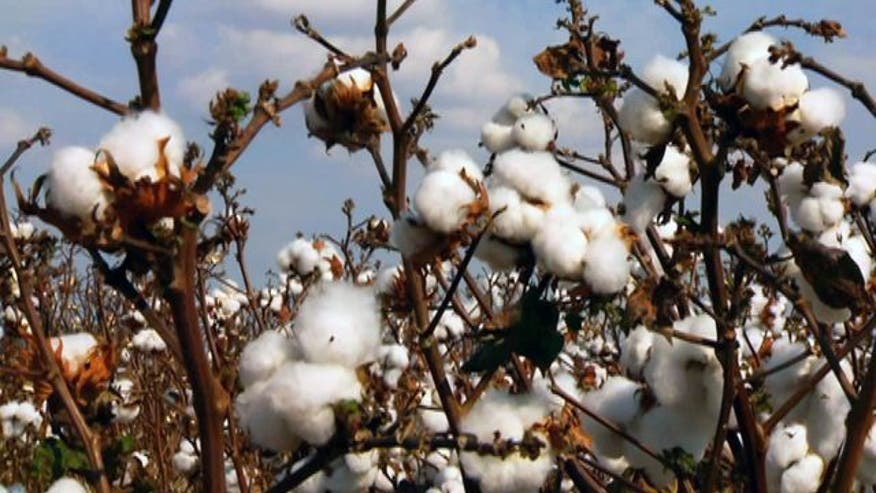
AIKEN, S.C. – The Unites States is the third-largest producer of cotton, a product that everyone wears, everyone uses. But that may not be enough to ensure the security of the American cotton industry, with China now a major player in the world cotton market.
“Most of the cotton now has got to get in the container and go overseas,” South Carolina cotton farmer, Carl Brown Jr. told FoxNews.com.
For the past three years, China has been turning to the U.S. for millions of bales of cotton. But instead of consuming that cotton and keeping the demand high, the Chinese have been storing it, gradually building its stock up to to more than 60 percent of the world’s inventory.
“The fact they are rebuilding their stocks and have almost a year’s supply of cotton in their warehouse has farmers in this country, merchants and everybody concerned about what’s going to happen to the cotton market,” Brown said.
Experts predict that China eventually will have cornered the world cotton market.
“They have a lot of control over those stocks, obviously, and that’s having a big impact on our prices,” cotton economist Don Shurley told FoxNews.com
China’s cotton reserves are at a record high 10 million tons, causing U.S. prices per pound to fall from 88 cents in 2012 to 71 cents in 2013. They averaged about $2 a pound in 2010. The U.S. crop also is projected to fall from about 17 million bales in 2012 to 14 million in 2013.
“China is the driver,” Brown said.
And China eventually could drive the prices down to 50 cents a pound.
“If it reaches that, you might as well park your equipment,” Brown said.
But that’s partially because U.S. consumption of cotton has dropped dramatically over the years. American cotton consumption is only a third the amount it was in the ’90s, as much of the production of clothes has moved overseas.
“We don’t have much of a domestic textile industry within the U.S. anymore,” Shurley said.
Brown said in the ’70s and ’80s, 70 out of every 100 bales were used domestically. Now, 80 out of every 100 are being shipped overseas.
The decrease in the demand for cotton is being felt nationwide. The National Cotton Council predicts there will be 25 percent less cotton acreage in 2013. But China, the world’s largest producer, largest consumer and largest importer of cotton seems to be the only thing keeping the U.S. cotton market above water.
“At some point, they are going to have to quit buying,” Brown said. “When that happens, what’s going to happen?”
Mary Quinn O’Connor is part of the Junior Reporter program at Fox News. Get more information on the Junior Reporters Program here.

